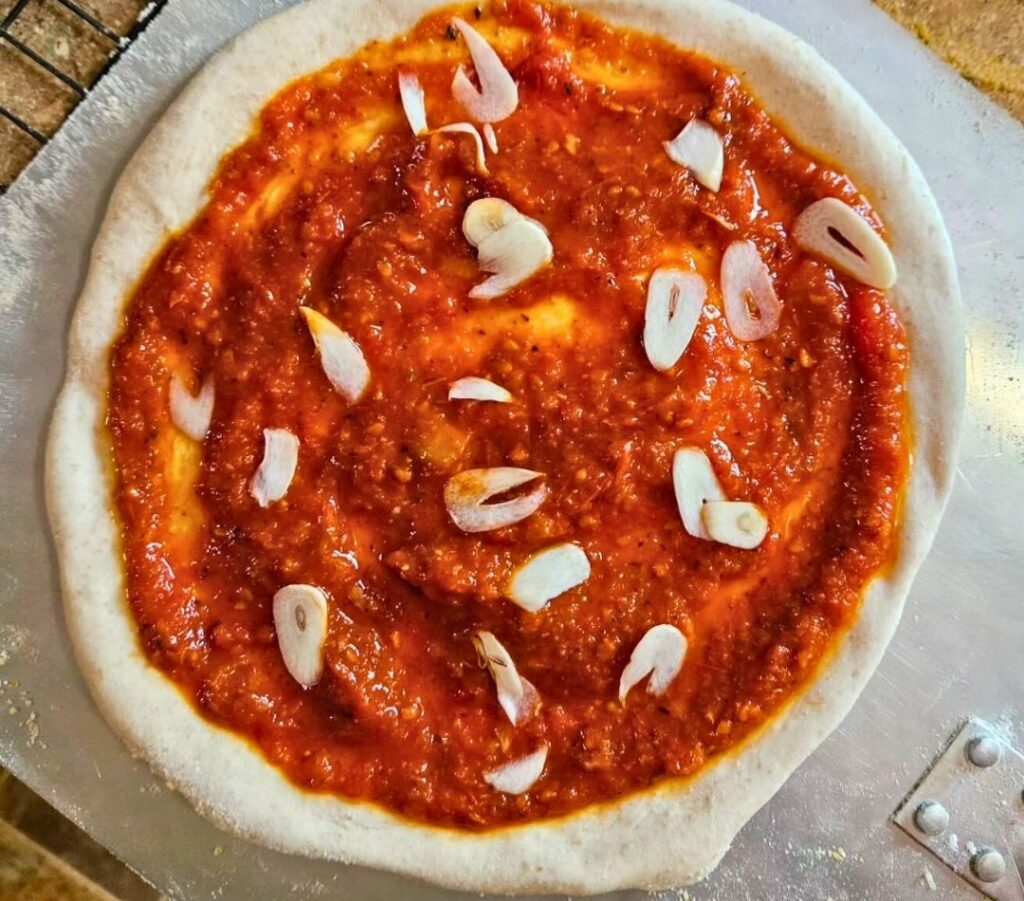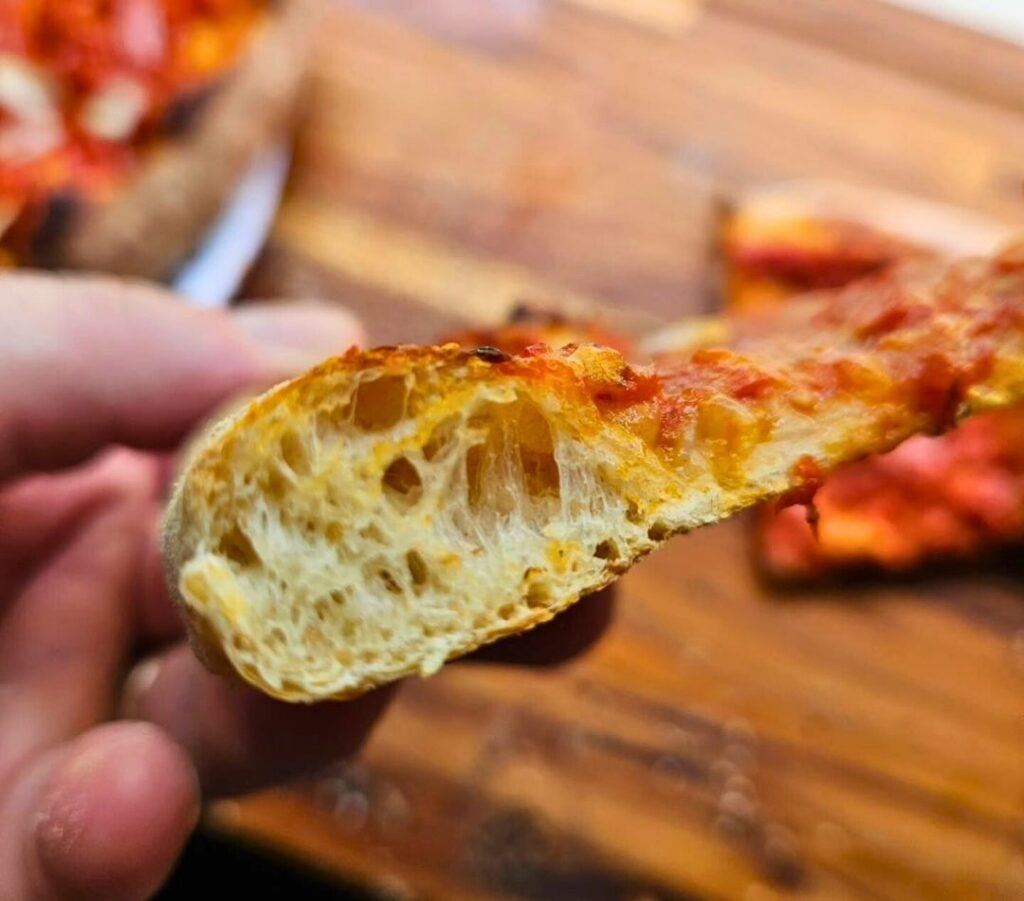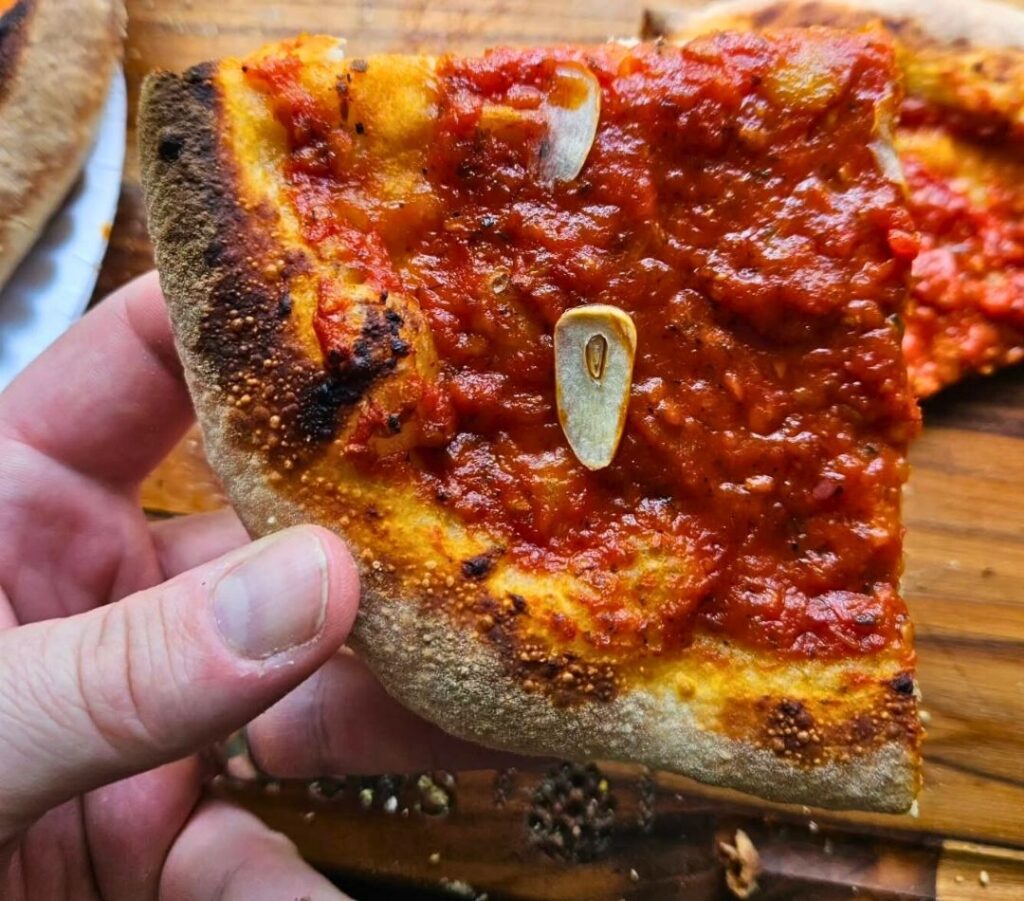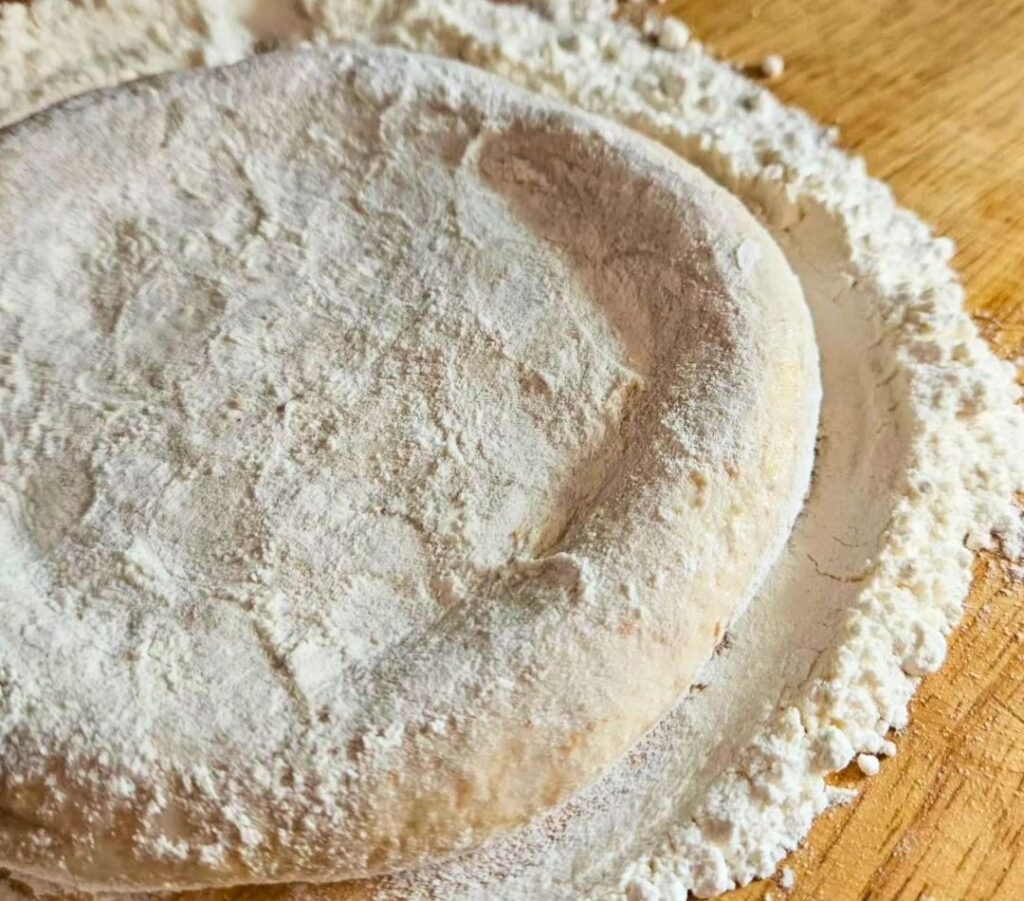If you’re someone who appreciates the quiet satisfaction of letting time do the work in the kitchen, this 72-hour artisan pizza crust will speak to you. Developed using high-quality Tipo 00 flour and a slow fermentation method, the result is a deeply flavorful, chewy, and light crust that rivals any Neapolitan-style pizza.
Paired with a homemade marinara sauce that uses only a handful of fresh ingredients—ripe tomatoes, olive oil, garlic, and a touch of seasoning—this pizza doesn’t rely on gimmicks. It’s a celebration of simplicity, patience, and quality.
Whether you’re a seasoned pizza-maker or someone just starting to explore homemade dough, this guide walks you through every essential step. From fermentation to shaping to the perfect 30-minute marinara, this recipe gives you a slice of Italian tradition, right from your own oven.
Why a 72-Hour Dough Makes All the Difference

Most quick-rise pizza doughs rely on extra yeast and heat to develop structure fast—but they skip over something essential: flavor. A long fermentation time allows enzymes and natural yeasts to break down starches and proteins in the flour, creating a crust with:
- A more complex, slightly tangy flavor
- Better texture: crispy on the outside, soft and chewy inside
- Easier digestibility due to broken-down gluten
If you’ve ever had pizza that tastes better the next day or from a wood-fired oven, chances are, time was a key ingredient.
Ingredients: Keep It Simple, Use the Best

For a dough and sauce this minimal, ingredient quality matters. Here’s what you’ll need:
For the Dough (Makes 2 Medium Pizzas)
- 500g Tipo 00 flour (or substitute with unbleached all-purpose if unavailable)
- 325g water (65% hydration)
- 10g fine sea salt
- 2g dry yeast or 5g fresh yeast
For the Marinara
- 2 tbsp extra virgin olive oil
- 3 cloves garlic, finely minced
- 4 large ripe tomatoes (or 1 can whole peeled San Marzano tomatoes)
- Salt and black pepper, to taste
- Pinch of sugar (optional, to balance acidity)
Step-by-Step: Making the 72-Hour Dough

1. Mix and Rest
In a large mixing bowl, combine the flour, salt, and yeast. Gradually pour in the water while stirring with a spoon or your hand until no dry flour remains. The dough will look rough and sticky—that’s perfect.
Cover the bowl loosely with a lid or plastic wrap. Let it rest at room temperature for 30 minutes to allow the flour to hydrate
2. Stretch and Fold
Over the next 1–2 hours, perform three sets of stretch-and-folds (every 30–40 minutes). This strengthens the gluten structure without kneading. To do this:
- Wet your hand slightly to prevent sticking
- Grab one edge of the dough, stretch it upward, then fold it over the center
- Rotate the bowl 90° and repeat until you’ve folded all four sides
3. Cold Fermentation
After the final fold, cover the bowl and refrigerate for 72 hours. The dough will rise slowly and develop deep flavor over this time. Don’t disturb it—just let the fridge do its work.
How to Shape & Bake Your Pizza

4. Bring Dough to Room Temperature
Take the dough out of the fridge about 2 hours before baking. This relaxes the gluten and makes shaping easier. Divide it into two equal balls and place them on a lightly floured surface. Cover with a damp towel.
5. Preheat Your Oven (or Pizza Stone)
Crank your oven up to its highest temperature—ideally 500°F (260°C) or higher. If using a pizza stone or steel, place it in the oven while preheating for at least 45 minutes. The intense heat helps create that blistered, bubbly crust.
6. Shape Without Deflating
Gently stretch each dough ball into a round, about 10–12 inches. Avoid using a rolling pin; your hands preserve the air pockets. Start in the center and work your way out, turning as you go. Place the shaped dough on parchment or a floured peel.
Quick Homemade Marinara: Your Pizza’s Best Friend

A great pizza needs a great sauce, but that doesn’t mean it has to be complicated.
7. Sauté the Garlic
Heat olive oil in a medium saucepan over low-medium heat. Add finely minced garlic and cook just until fragrant—about 30 seconds. Don’t let it brown, or it will turn bitter.
8. Add the Tomatoes
If using fresh tomatoes, crush them by hand or with a fork. If using canned, drain slightly and crush as well. Add them to the pan, along with a pinch of salt, pepper, and sugar if needed.
Let the sauce simmer gently for 20–30 minutes, stirring occasionally. You want a soft, velvety texture with a bright, clean flavor.
Pro tip: For extra smoothness, you can blend the sauce after cooking. Or leave it chunky for rustic charm.
Toppings: Minimalist by Design
This dough and sauce combo shines best with a light hand. Try these combinations:
- Classic Margherita: Fresh mozzarella, basil, and a drizzle of olive oil
- Garlic & Herb: Thin garlic slices, oregano, chili flakes, and olive oil
- Seasonal Veg: Zucchini ribbons, roasted peppers, or sautéed mushrooms
Resist the urge to overload the pizza—too many toppings will weigh it down and lead to soggy crust.
Baking Tips: Getting That Artisan Finish
Slide the pizza (with parchment) onto your hot stone or steel. Bake for 7–10 minutes, until the crust is puffed and golden, and the cheese is melted.
If your oven doesn’t get hot enough, try finishing under the broiler for 1–2 minutes to add a charred touch.
Final Touches: The Details Matter
As soon as your pizza comes out of the oven, add a finishing drizzle of extra virgin olive oil or a sprinkle of flaky salt. Fresh herbs like basil or arugula give it that pizzeria flair.
Let it rest for a minute or two before slicing to prevent the toppings from sliding.
Storage & Reheating
Got leftovers? Store slices in an airtight container in the fridge for up to 3 days. To reheat, avoid the microwave. Instead, warm slices in a skillet over medium heat, covered, until crisp and gooey again.
Why You’ll Come Back to This Recipe
The beauty of this recipe lies in its balance of simplicity and technique. A slow-rise dough, a quick but powerful sauce, and minimal toppings create a pizza experience that’s surprisingly achievable at home.
You don’t need a wood-fired oven—just time, good ingredients, and attention to detail.
Whether for a Friday night gathering or a quiet Sunday meal, this is pizza worth the wait.

72-Hour Artisan Pizza Crust with Fresh Marinara Sauce
Ingredients
Method
- In a large bowl, combine Tipo 00 flour, salt, and yeast. Gradually add water while mixing until a rough, sticky dough forms. Cover loosely and rest at room temperature for 30 minutes.
- Perform three sets of stretch-and-folds every 30-40 minutes over the next 1 to 2 hours to strengthen gluten. To do this, stretch one edge of the dough upward and fold it over the center, rotating the bowl 90° each time.
- Cover the bowl and refrigerate the dough for 72 hours to allow slow fermentation and flavor development.
- Remove the dough from the fridge 2 hours before baking to come to room temperature. Divide into two balls and let rest covered on a floured surface.
- Preheat the oven to the highest temperature possible (around 500°F/260°C), placing a pizza stone or steel inside for at least 45 minutes.
- Stretch each dough ball gently into a 10-12 inch round on a floured surface, avoiding a rolling pin to preserve air pockets.
- Heat olive oil in a pan over medium heat. Add minced garlic and sauté until fragrant but not browned, about 30 seconds.
- Add crushed fresh or canned tomatoes to the pan. Season with salt, pepper, and optional sugar. Simmer gently for 20-30 minutes, stirring occasionally, until sauce thickens and flavors meld.
- Place the stretched dough with parchment onto the preheated pizza stone or steel. Bake for 7-10 minutes until crust is puffed and golden and toppings are cooked.
- Remove pizza from oven, drizzle with extra virgin olive oil or sprinkle flaky salt and fresh herbs as desired. Let rest for 1-2 minutes before slicing.
Notes
- Use high-quality Tipo 00 flour for best texture and flavor, but unbleached all-purpose flour can be substituted if necessary.
- Maintain precise timing during stretch-and-folds to develop gluten properly without overworking the dough.
- Letting dough rest at room temperature before shaping makes it easier to handle.
- Preheat pizza stone or steel thoroughly to ensure a crispy crust.
- For a smoother marinara, blend the sauce after simmering or leave it chunky for rustic texture.


Leave a Reply